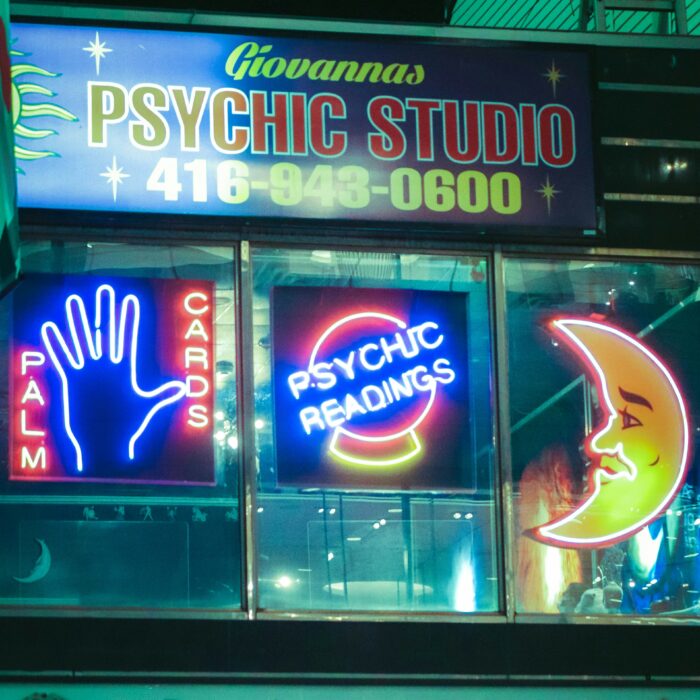You have no items in your cart. Want to get some nice things?
Go shopping
 In a sedate bay and gable house on Harbord Street, a group of worshippers assemble for the weekly satsang at the Sivananda Yoga Centre in Toronto. From the Sanskrit satsanga, meaning “association with good men”, the satsang is a fusion of prayer, chanting and devotional singing. Though there’s usually a changing roster of faces, after a few weeks you begin to recognise the keen ones: the hot-shot Russian human rights lawyer, the international development graduate student, the Bohemian French teacher, the Colombian woman in a folding chair recently diagnosed with multiple sclerosis.
In a sedate bay and gable house on Harbord Street, a group of worshippers assemble for the weekly satsang at the Sivananda Yoga Centre in Toronto. From the Sanskrit satsanga, meaning “association with good men”, the satsang is a fusion of prayer, chanting and devotional singing. Though there’s usually a changing roster of faces, after a few weeks you begin to recognise the keen ones: the hot-shot Russian human rights lawyer, the international development graduate student, the Bohemian French teacher, the Colombian woman in a folding chair recently diagnosed with multiple sclerosis.
Though once in a while you see the odd Indian – like myself – in the mix, most of the congregation are young white professionals. They begin with the Centre’s yoga classes and drift towards the satsang. Others are spiritually curious or misfits searching for a home in Toronto.
A woody smell of incense wafts from the shrine as a lithe blonde with a Croatian accent starts up a harmonium and sings. Drums beat, cymbals chime, maracas rustle and tambourines jingle as our voices gather and swell to a fevered pitch, entering the last refrain: Anand o hum. I am bliss, bliss absolute, bliss I am.
We prostrate before the altar, pressing our foreheads to the wooden floor. The altar is a profusion of flowers, brass idols and vibrant posters of Hindu gods and gurus: the blue-hued Krishna luring milkmaids with his flute, the ascetic Siva in a tiger skin, and an orange-robed Swami Vishnudevananda with a mane of white hair, convulsed in laughter.
An officer in the Indian army turned Hindu monk, Swami Vishnudevananda was dispatched by his guru Swami Sivananda in 1957 to spread the practice of yoga in the West. In 1962, he opened the Sivananda Yoga Vedanta Centre in Toronto, one of the oldest in the city.
In a 1960 TV interview, Swami Vishnudevananda explains what yoga is: a path to bliss, joy and happiness. “Yoga is a regulated life. Controlling your body, controlling your diet, controlling your breathing, controlling your thoughts and emotions, and then thinking of the supreme being.”
When yogic discipline was cultivated with moral leadership, he believed it could be a cure for worldwide suffering. In the 70s and 80s, Swami Vishnu flew on peace missions to the world’s troubled spots, over northern Ireland and the Suez canal, bombing them with flowers and peace pamphlets.“Man is free as a bird,” he appealed. “Overcome man-made borders with flowers and love, not guns and bombs!”
His message struck a chord and his following swelled. Today there are 19 Sivananda Yoga Centres across 11 countries.
The popularity of Sivananda Yoga is part of a growing turn towards New Age movements, Aboriginal and Eastern spiritual traditions and practices such as yoga and meditation. Philosopher Charles Taylor argues that the secularisation of modern Western societies does not lead to the demise of religion, but the cracking up of old religious forms. It also gives rise to a search for new approaches to religion and spirituality, including atheism. While a return to orthodoxy or unbelief may work for some, others are casting about for an alternative way.
Most of us at the Sivananda Centre are relatively young – the “millennial” generation – and were brought up without any strong religious anchor. The unfamiliarity for most with Eastern traditions makes it feel more palatable, less compromised. Even Canadians of Indian origin like myself are often raised rootless, in this land of the future where immigrants come to shed their past. With an atheist father and a lapsed Hindu-Christian mother whose religious sensibility extended to a crucifix and stick of incense tucked into a clothes closet, I grew up curious about all religions, but with no sense of belonging to any one of them. Not having lived in India, I don’t associate Hinduism with caste prejudice or patriarchy; I have not witnessed the nastiness of Hindu sectarian politics firsthand. It is as untainted for me as it is for my fellow chanters at the satsang.
Like many of my peers, I have been a spiritual dabbler too: I have meditated with Buddhists, sat in silence with Quakers, and taken the eucharist with Anglicans. But defining myself rigidly as a member of any one of these faiths feels unthinkable. I’m happy to call myself spiritual, but not religious.
I am not alone in feeling this way: a Pew Research study found that between 1971 and 2001, the number of people who identified as Protestant and Catholic in Canada declined, from 41% to 27%, and 47% to 39% respectively. On the other hand, the number of people who do not identify with a religion increased dramatically, from 4% to 24%. Between a quarter to a half of those without a religious affiliation are like me: spiritual but not religious, or SBNRs.
SBNRs are suspicious of institutions that reek of authoritarianism, offend reason and perpetuate oppressive practices – in our minds, all attributes of established religion. We prefer ‘spirituality’ to ‘religion’: it’s a term imprecise and innocuous enough to contain the possibility of the numinous, while allowing us to remain uncommitted, to preserve our doubts. We care about climate change and income inequality; we march for LGBT rights and the polar bear, and protest the G20 summit. But behind our commitment – not always coupled with concrete action – to a world where everyone has the opportunity to realise their potential in a sustainable way, there is often a gnawing feeling of emptiness, a lack of meaning in the everyday, in the endless cycle of desire and fulfilment characteristic of modern, consumer society. We are happy to fight for freedom, but sometimes stop and wonder: freedom to do what – consume sustainably? The freedoms we enjoy that earlier generations do not always free us from perennial questions of human existence, and might make them more pressing: Who am I? Why am I here? It is no coincidence that one of the most acclaimed books of recent years written by someone of my generation bore the title How Should a Person Be?
Freedom can be burden. We enjoy a freedom of religious, spiritual, and ethical orientation possibly unprecedented in our history. Yet we miss an overarching framework to understand suffering and solemnise the crucial moments of our lives. There’s a growing epidemic of loneliness and depression — we’re in therapy and popping pills. And in our fragmented, shifting, metropolitan lives, as we repeatedly uproot ourselves for study, work, and adventure, we also don’t have a stable community that faith groups once provided.
Yet the search for spiritual alternatives is also often unsatisfying: we don’t just want an answer, we also value “authenticity”. Many new forms of spirituality lack that weathered old face of tradition. The attraction of eastern traditions – like Sivananda Yoga – lies in the crossroads of old and new: the anchor in an ancient tradition, an effort to preserve the purity of its roots, plus the flexibility SBNRs cannot live without.
Sivananda Yoga allows me to follow my own spiritual instincts; it gives me an anchor without restricting me to either one creed or set of rituals. During meditation, we can focus on our breathing, repeat a mantra, or fix our minds on God – any God, of our choosing. Since scepticism has always been a part of Hindu tradition, and incorporating new gods into its pantheon never fazed this religion, this flexibility feels refreshingly authentic, rooted in tradition.
Yet at the back of my mind, there is a nagging doubt, still: if I really want bliss, shouldn’t I commit and become a proper yogi? Can my eclecticism and doubt ever satisfy, the way absolute belief must for the orthodox?
Given the choice between orthodoxy and an uncharted third way, I’ll choose the beauty, and painful uncertainty, of a question – for now.
About Manini Sheker
I hold a MPhil in International Development from the University of Oxford and a Masters of Social Work from the University of Toronto. I've contributed articles to the Guardian, openDemocracy and Seminar magazine among other publications. In 2011 I was a finalist in the Guardian's International Development Journalism competition and in 2013 awarded the Ngo Human Welfare Prize by the University of Oxford for an essay on religion, freedom and economic development.



